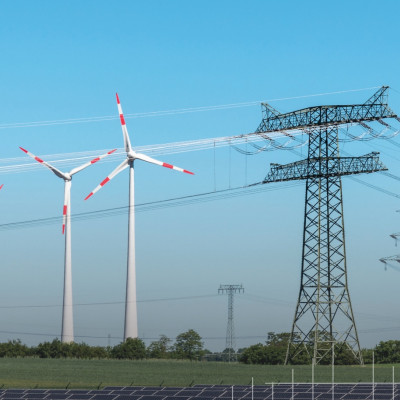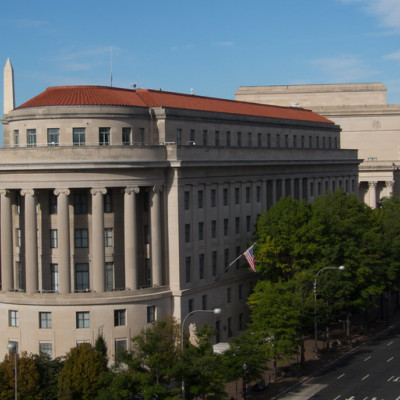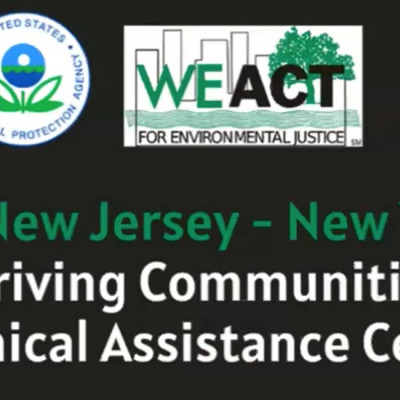February 29, 2024
February 2024 at Policy Integrity
- Who’s Responsible for Grid Reliability During the Energy Transition?
- The Latest in the Fight Against Hidden Fees
- A New Standard for Green Buildings
- Our Environmental Justice Work in Action
- In the News: LNG Pause, Regulating in Fantasyland
- More from This Month
-

Who’s Responsible for Grid Reliability During the Energy Transition?
As the energy transition accelerates, our electric grid will face at least three challenges simultaneously: the rapid replacement of aging fossil-fuel power plants with cheaper renewables, increased demand from energy-intensive technologies like AI, and increased physical vulnerability due to climate change. Regulators must address these energy supply challenges while also ensuring the grid remains reliable for consumers. Such a task will require both effective coordination and a clear understanding of who is responsible for what. Our new report offers the latter. In it, we discuss how EPA’s duty to reduce greenhouse gas emissions that endanger public health and FERC’s duty to steward grid reliability will require them to coordinate as they work with RTOs/ISOs, state regulators, and utilities to implement EPA rules, including a recent proposed rule limiting greenhouse gas emissions from fossil-fuel-fired power plants.
-

The Latest in the Fight Against Hidden Fees
Policy Integrity has been influential in supporting the Federal Trade Commission's (FTC) recent efforts to combat hidden fees that some companies conceal until the very end of transactions. Our involvement began in 2021, when our staff and clinic students submitted a petition for rulemaking proposing that the FTC ban the practice. We were then thrilled to see a proposed rule late last year that would impose such a ban. This month, we submitted comments on the proposed rule with suggested edits and additions to the regulatory text to ensure that it fully ends this deceptive business practice. For example, we recommended that the FTC specify that consumers must opt-in to paying any optional charges for additional services (like a spa access fee at a hotel) rather than being forced to opt-out of them. This requirement would ensure that consumers knowingly consent to what they’re buying and are not saddled with hidden fees. Our comments also suggested several actions to strengthen FTC's analysis of the rule’s costs and benefits.
-

A New Standard for Green Buildings
Green construction and energy efficiency designations for buildings (think LEED certifications) are well known. Now the White House Climate Policy Office (CPO) and Department of Energy (DOE) are developing a new designation. The National Definition for a Zero Emissions Building is intended to serve as a “clear market signal and consistent target” to help move the building sector towards zero emissions. We submitted comments to CPO and DOE this month in response to their recent request for information concerning the proposed National Definition. We made several arguments, including that a single national definition to cover all building types may be counterproductive if it discourages buildings that can’t yet procure carbon-free electricity from otherwise still reducing on-site emissions as much as possible. Instead, we suggested that DOE and CPO should consider whether separate definitions may be appropriate for some building types, allowing more finely-tuned criteria appropriate to the specific building type.
-

Our Environmental Justice Work in Action
As part of our work with EPA’s Region 2 Thriving Communities Technical Assistance Center (TCTAC), which provides legal, policy, and economic technical assistance for EJ communities and relevant advocacy groups, we recently hosted a webinar on federal EJ efforts. We provided an overview of Justice40 and the Climate & Economic Justice Screening Tool (CEJST), and presented a tutorial on how to determine if a community is eligible to receive Justice40 funds using the CEJST. We also led a training at EPA’s recent symposium in Puerto Rico for all the TCTACs in the country on environmental justice law and policy.
Additionally, we recently submitted comments to CEQ and EPA on their respective efforts to meaningfully institutionalize environmental justice considerations. In both cases, we explained the importance of transparency and specificity in how agencies articulate the environmental justice effects of their actions.
-

In the News: LNG Pause, Regulating in Fantasyland
In the wake of the Department of Energy’s (DOE) decision to pause approvals for new liquefied natural gas (LNG) exports, our Max Sarinsky and Minhong Xu have provided much-needed expert commentary on the costs and benefits of the pause, building on their report that examines the issue in detail. As Xu told United Press International, the report found that the gross climate costs of additional export LNG outweigh the economic benefits for consumers and that these findings could provide a potential basis for DOE to rationally conclude that future export applications do not serve the public interest. In two E&E News articles, Sarinsky argued that lawsuits over currently-approved exports are unlikely to be significantly affected by the pause but that DOE could very well change its analysis for all new approvals afterwards. The report was also the centerpiece of a recent Canary Media article that quoted both authors.
In a recent op-ed, our Andy Stawasz discussed the National Highway Transportation Safety Administration’s Corporate Average Fuel Economy Standards and the agency’s irrational constraints that “artificially keep standards lax, to the benefit of politically favored gas-powered car companies and fossil fuel interests.” Stawasz highlighted commonsense options to remove these constraints.
-
More from This Month
- On February 7th, we hosted a webinar focused on energy modeling research and how it can inform policy.
- We submitted comments to the Treasury on its 45V Clean Hydrogen Production Tax Credit.
- We submitted comments to the CFTC on its voluntary carbon credit derivatives guidance.
- We submitted comments to EPA on its Draft Scientific Integrity Policy.
- We submitted comments to NYPSC regarding amendments to the Public Service Law to add a new section on zero-emissions.
- We submitted comments to NYSERDA on a proposed cost-effectiveness test for updates to the State Energy Conservation Construction Code.
